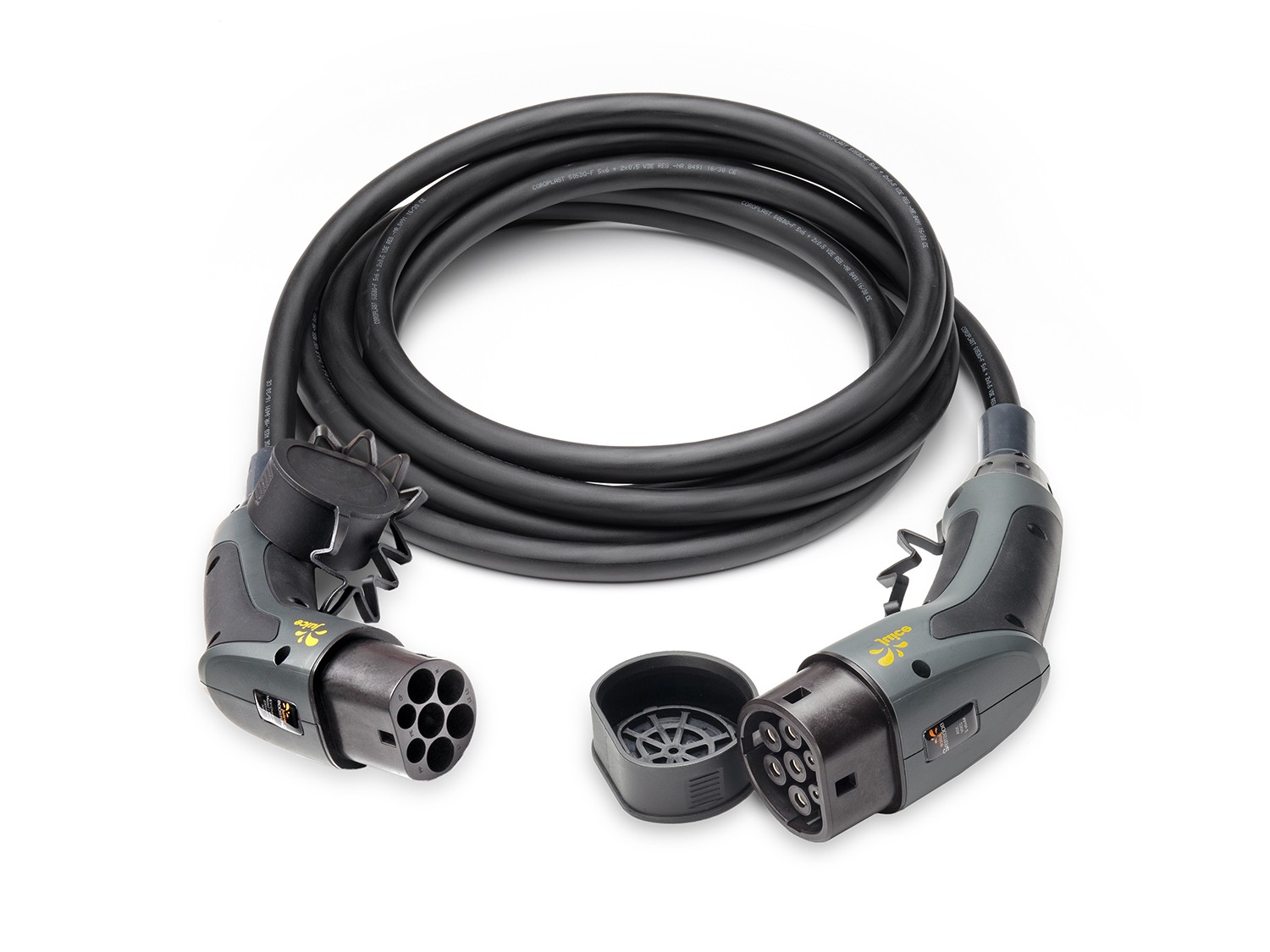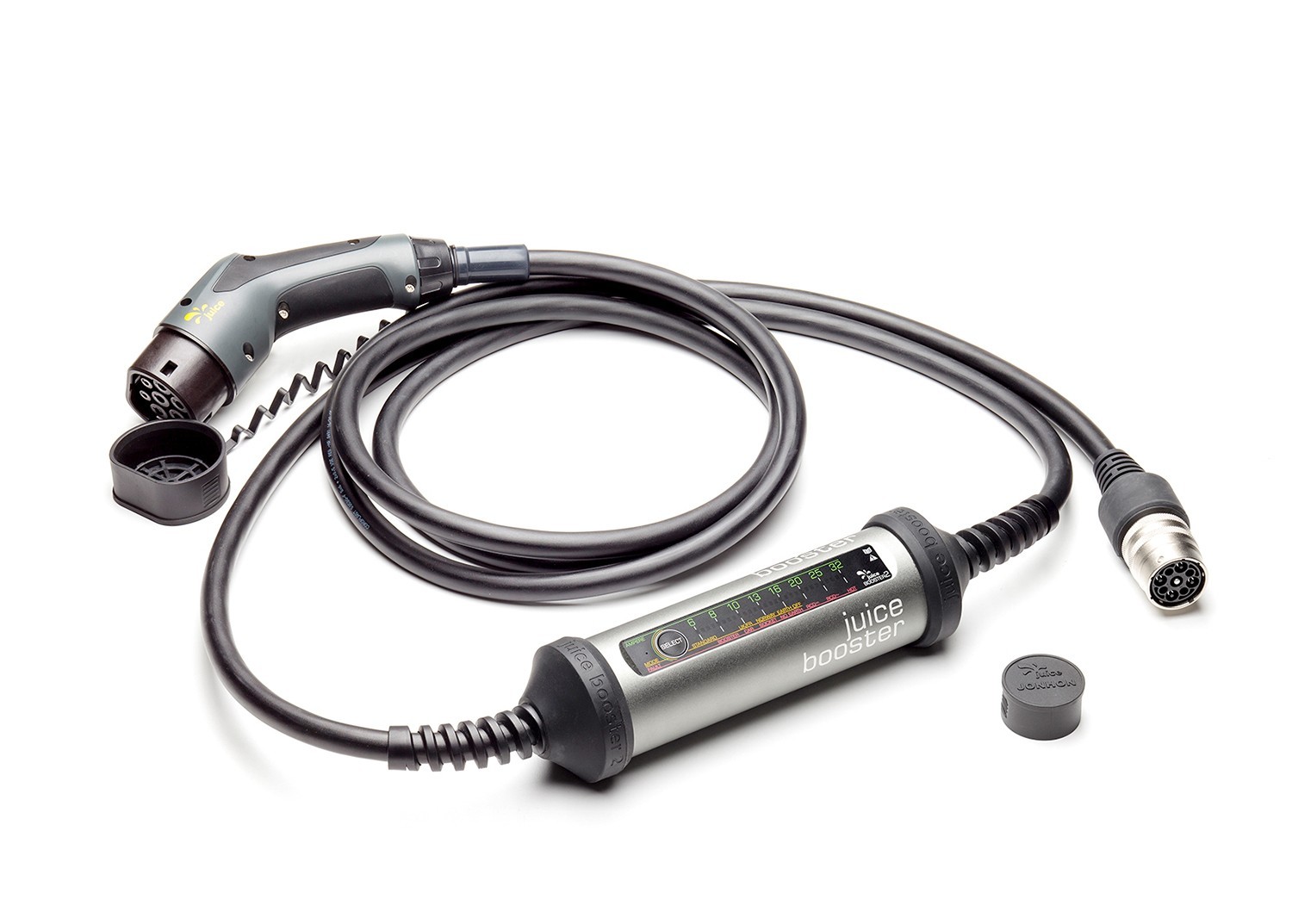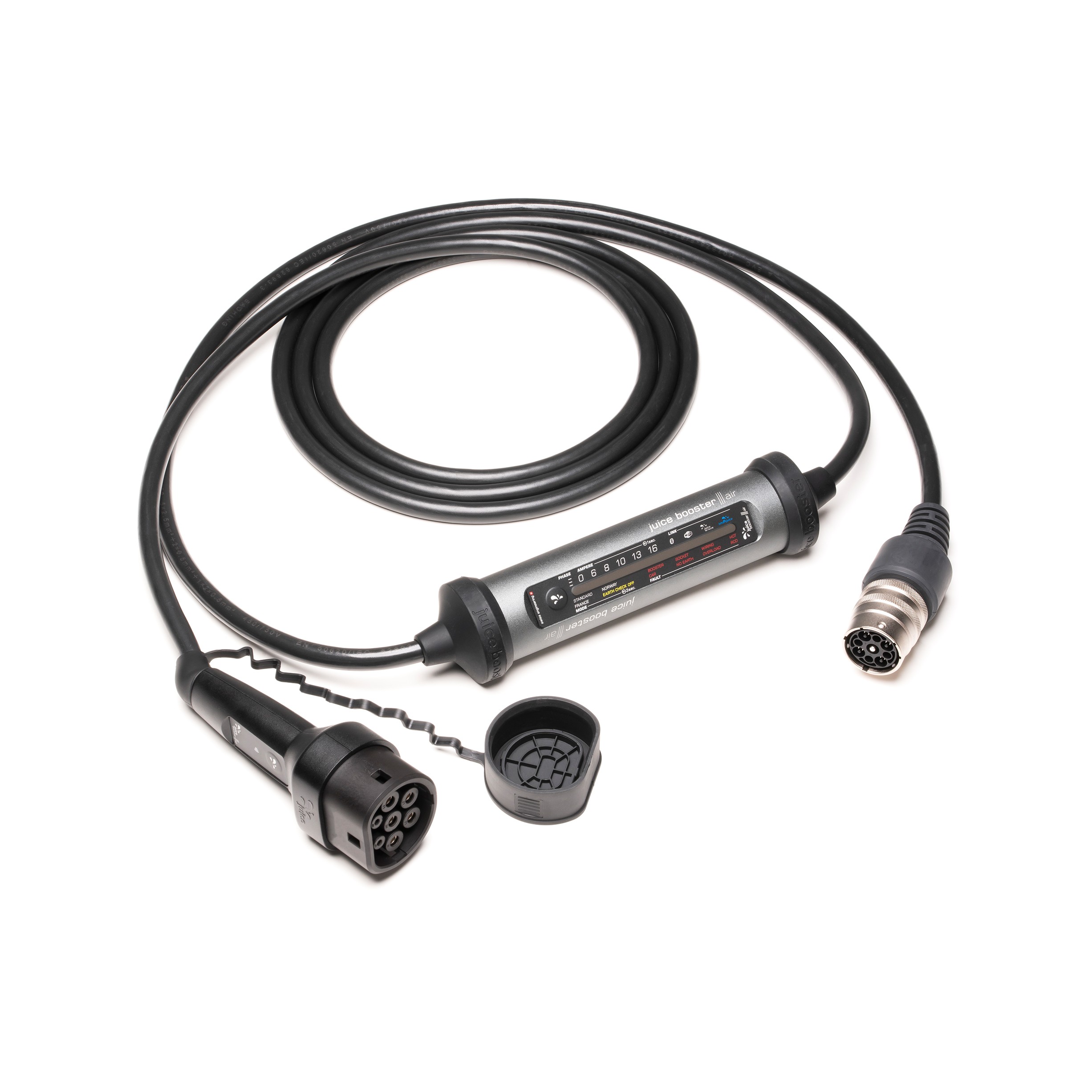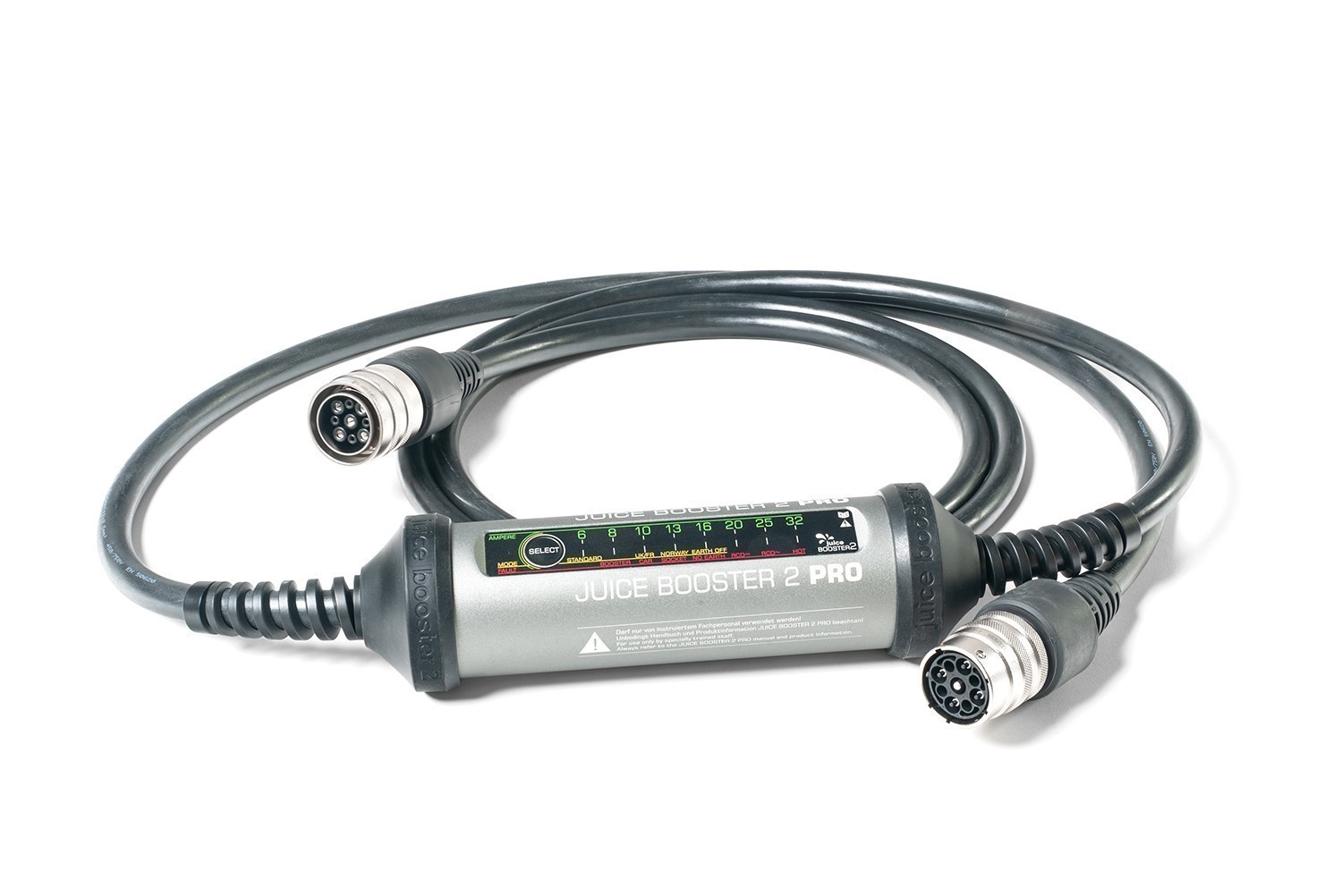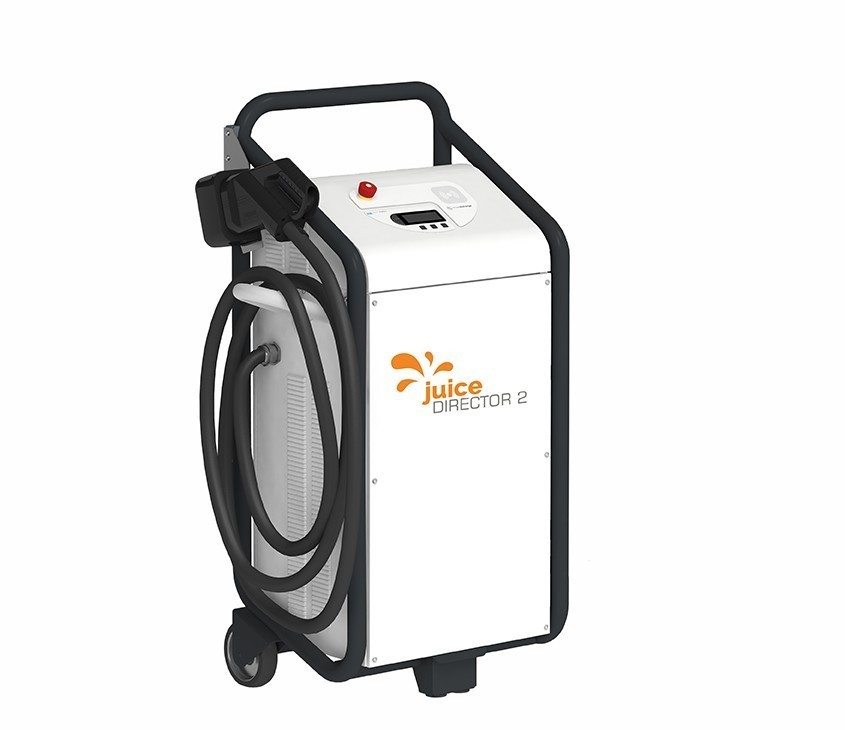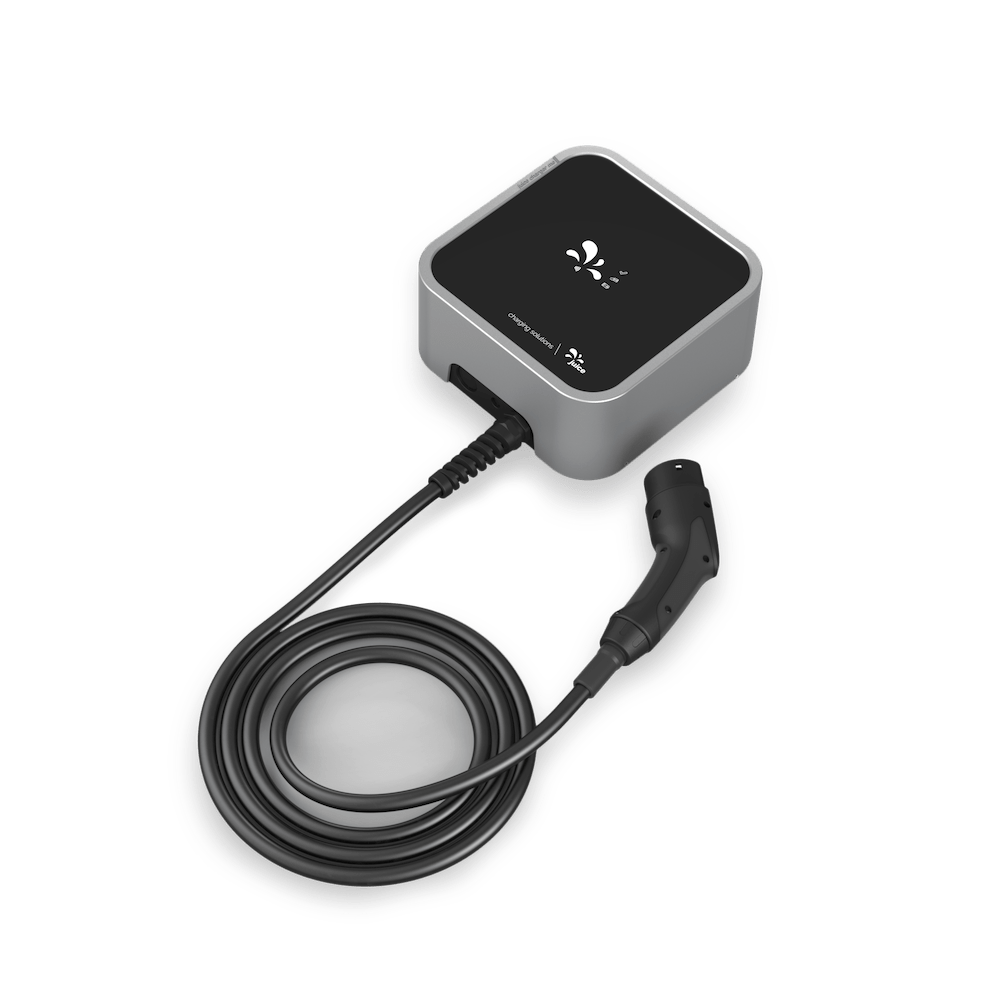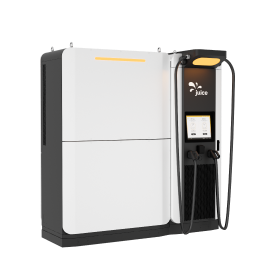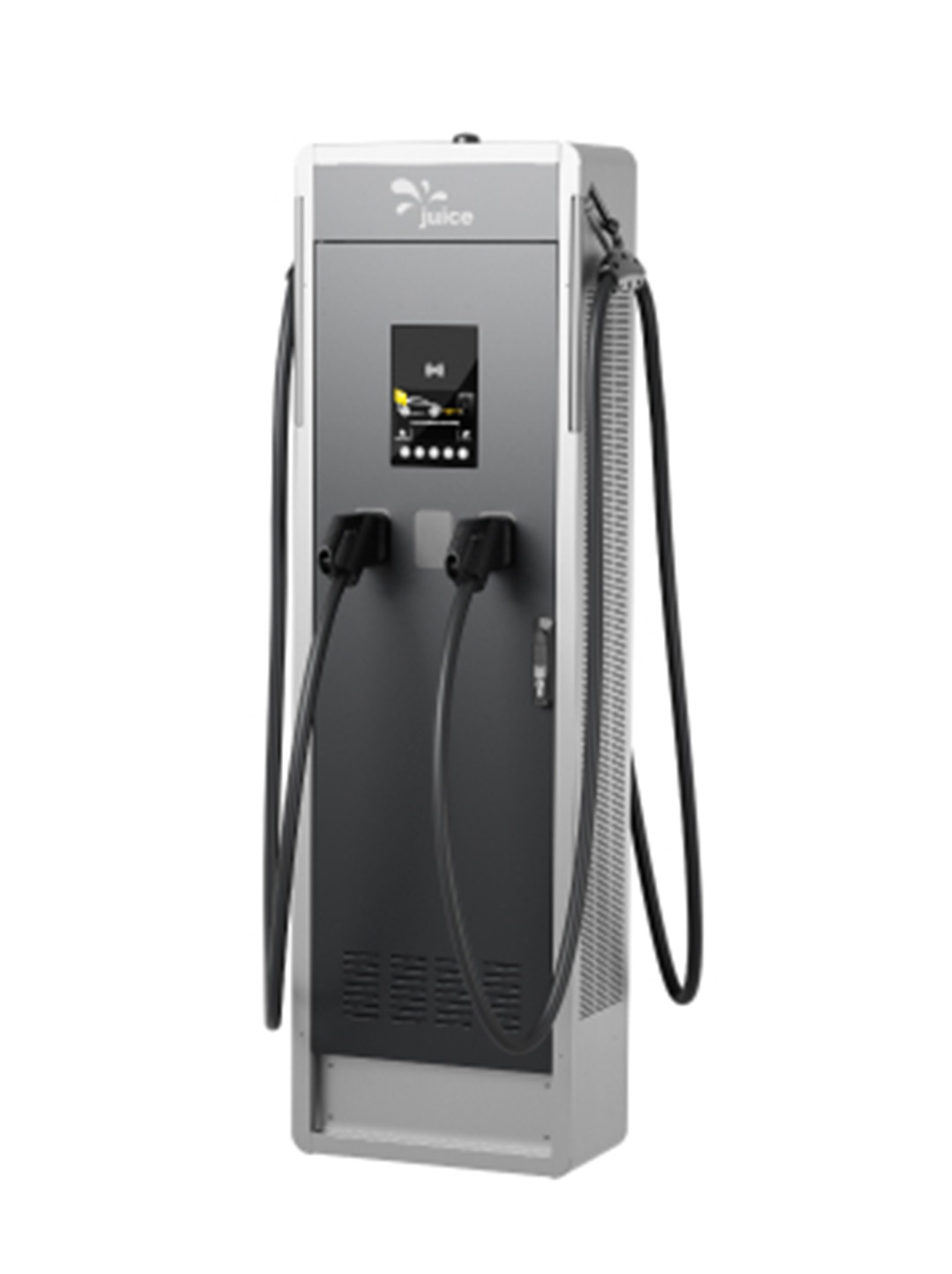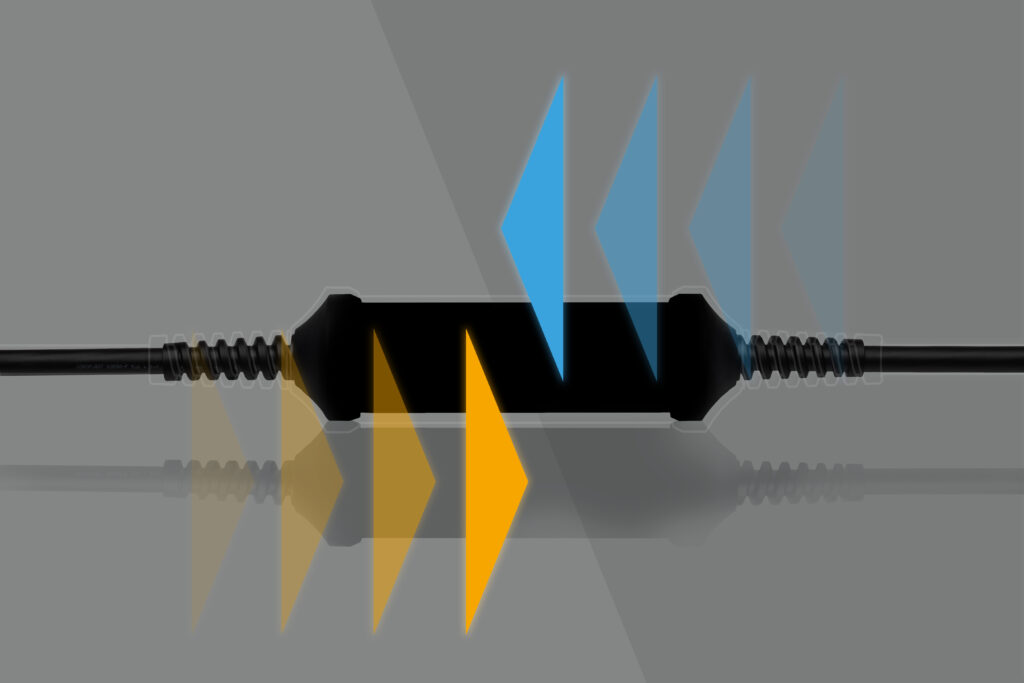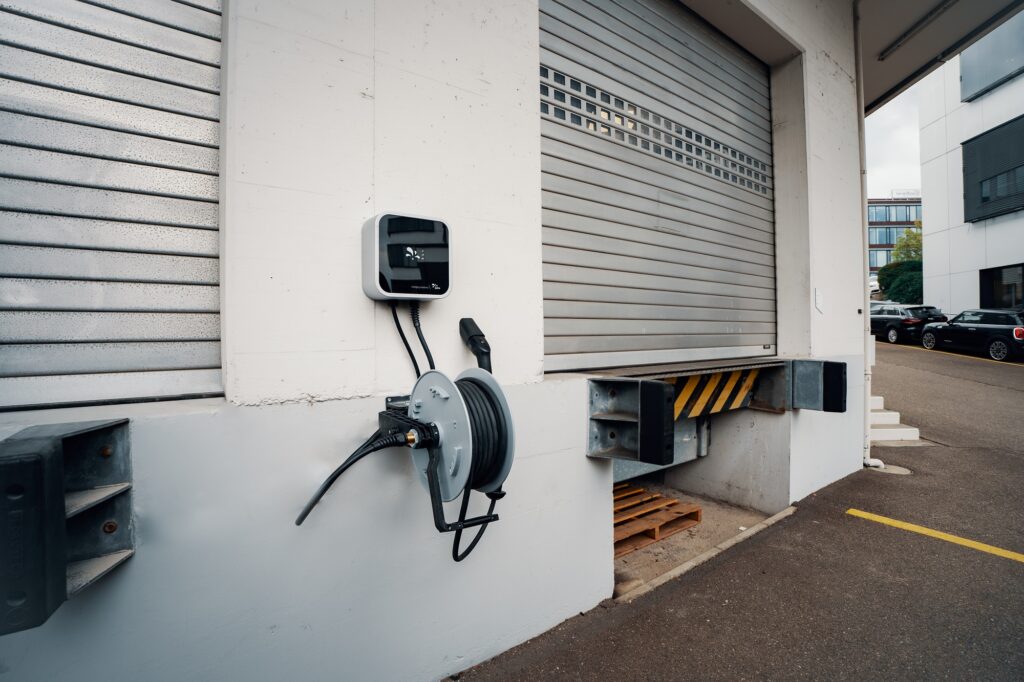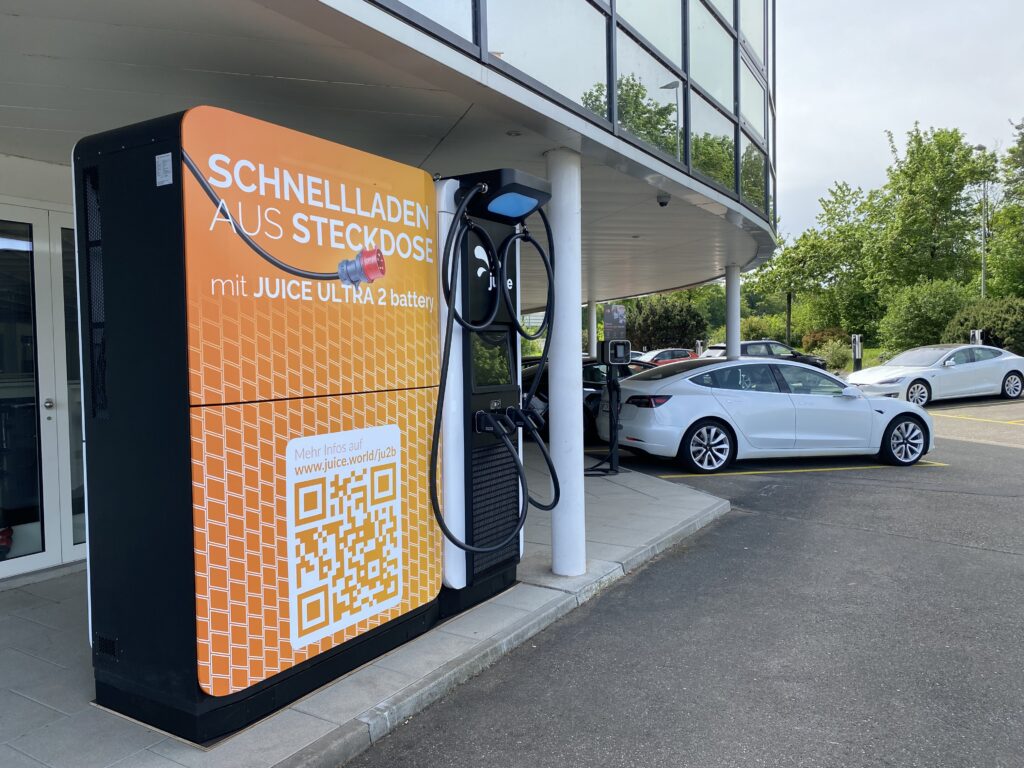JUICE CELSIUS makes the JUICE BOOSTER a safety pioneer
Charging electric cars from conventional domestic sockets sounds like a tempting proposition. After all, these power outlets are universally available, there is no need for an expensive wall charger, and cars can be charged overnight with sufficient electricity for the next day. Yet we are generally advised against this, and domestic power sockets are usually described as an emergency solution only.
But why is this? What are the dangers? And how does JUICE CELSIUS help to ensure safe charging? You will find answers to all these questions below.
- Charging from domestic power sockets: only in emergencies?
- What are the possible dangers, and how can we avert them?
- Detecting overheating where it occurs
- Detailed fault detection for maximum protection of persons and their property
- Summary
1. Charging from domestic power sockets: only in emergencies?
A major advantage of electric vehicles is that they can be charged virtually anywhere. If a fixed wall charger is not available, you can also use a CEE16 or CEE32 socket to charge with the full output of a mobile 11-kW or 22-kW wall charger. However, these are not always to hand either. So that leaves the domestic socket. But is this even a safe solution?
The simple answer is yes – with the right equipment, that is. To prevent any overheating of the power connection and protect against potential cable fires, you should use a mobile wall charger that offers maximum safety levels – i.e. a JUICE BOOSTER 2 or 3 air with integrated JUICE CELSIUS temperature sensor technology.
2. What are the possible dangers, and how can we avert them?
Particularly in old buildings, poorly installed or outdated electrical systems can be a potential source of danger. Electrosuisse, the Swiss association for electrical, energy and information technology, lists the following as typical faults of electrical installations:
- Damaged cables
- Faulty insulation
- Defective sockets
- Poor-quality contacts
- Ineffective protection against electric shocks
If a high-powered device is connected to an old and deficient electrical circuit, this can result in a system overload. For example, insulation faults can lead to residual currents, which in turn can cause fires.
That is why domestic power sockets should only be used with charging stations that have been sufficiently tested, comply with all applicable standards and offer a high level of safety. Juice is a pioneer in this area and has developed a temperature sensor that is integrated directly in the plug pins of the domestic adapters.
3. Detecting overheating where it occurs
The patented domestic adapters (Schuko, T12/T13, Type L and Type G) of the JUICE BOOSTER have all been tested by the German Association for Electrical, Electronic & Information Technologies (VDE). The angled design prevents wear and tear of the socket sleeve due to pushing and pulling actions. But that is not all:
The sensor in the plug pins detects when the socket becomes too hot. The fact that the temperature is registered directly where it occurs is important because it allows the device to react before the socket overheats and the line can overload.
When a predefined temperature (70 degrees Celsius according to the latest standard) is exceeded, the connector sends a signal to the control unit. The JUICE BOOSTER then brings the charging process to a controlled stop. You may ask why the JUICE BOOSTER does not simply switch off. The answer is that this controlled shutdown protects the sensitive electronics of the electric vehicles, thus preventing damage to the charger and the car itself.
Once the pins have returned to a normal temperature, the charging process resumes, but at one power level lower. This is repeated up to three times. Thus, the home installation remains intact while the battery is still fully charged. However, if the plug overheats again on the third attempt, the charging cycle is stopped entirely for safety reasons.
4. Detailed fault detection for maximum protection of persons and their property
Electric cars are usually charged wherever their owners are at the time, which may be at home, at work, on holiday or at a friend’s house. However, the condition of the existing electrical installation is usually an unknown quantity. To maximise user safety and protect the building infrastructure, it is essential that potential faults are prevented before they can even arise. Therefore, to ensure safe and reliable operation, a charging station not only has to protect against DC and AC fault currents, but must also be able to detect, indicate and avert faults such as potential overheating problems at an advanced stage.
The JUICE BOOSTER 3 air satisfies all these requirements and more thanks to its comprehensive safety features: If a socket is wired incorrectly or if a vehicle draws more power than permitted, the Booster recognises this and either refuses or immediately stops the charging process. Every error is clearly indicated on the display. The JUICE BOOSTER 3 air thus also functions as a detector for potential faults on the mains side and offers reliable protection against problems on the vehicle side. This not only helps to prevent personal injury but also guards against property damage.
5. Summary
A safe and reliable charging infrastructure is indispensable when it comes to building user trust in electromobility. Potential risks must be avoided – particularly when using domestic power sockets as a temporary charging facility.
The active JUICE CELSIUS temperature monitoring in domestic adapter plugs protects domestic installations and electric vehicles alike. Detecting overheating problems at an early stage can minimise the risk of fires, which in turn raises user safety. At the same time, the smooth and controlled shutdown of the charging process prevents damage to the sensitive electronics of electric vehicles. Consequently, this technology plays a crucial role in creating a safe and efficient charging infrastructure, which strengthens the trust of users in electromobility.
Juice established itself as a global pioneer with its active temperature monitoring – a solution that has proved so successful in practice that it has since also been adopted by other manufacturers. The significance of this development is highlighted by the fact that temperature monitoring in chargers to which domestic adapters are connected has been included in the IEC standard 62752 (ed. 2).
